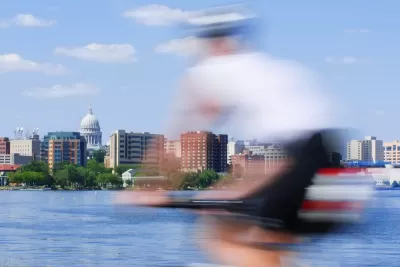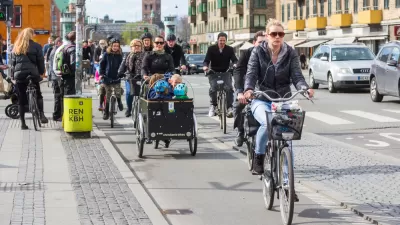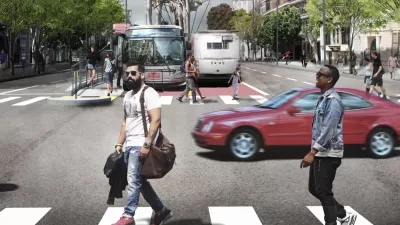It was always a risk that states would use funding from the federal Infrastructure Investment and Jobs Act to double down on the transportation systems that create congestion and air pollution.

“A $283 million boost in federal highway money that Wisconsin is getting from Washington got approval from the Legislature’s budget committee Tuesday, but only after the Republican majority rewrote some of the spending plan for the new funds,” reports Erik Gunn for the Wisconsin Examiner.
“The money comes to the state as a result of the federal [Infrastructure Investment and Jobs Act] enacted in late 2021 and the 2022 federal appropriations bill that followed this March,” adds Gunn to explain the state’s largesse.
The reasoning behind the Republican rewrite of the spending plan is worth paying attention for planners and advocates hoping to fund and complete projects proven to reduce automobile trips, reduce congestion, and reduce air pollution from combustion engines. The original plan for the $283 million, proposed by the Wisconsin Department of Transportation (WisDOT), devoted $4.3 million of the funding to the state’s Congestion Mitigation and Air Quality Improvement program (CMAQ). The changes implemented by Republican committee members, however, ensure that the CMAQ funding won’t be spent on bicycle, pedestrian, or trail facilities.
The WisDOT is limited to spending CMAG funds in non-attainment and maintenance counties (i.e., high air pollution areas, as defined by federal law) in southeastern and northeastern Wisconsin—Milwaukee, Racine, Kenosha, Waukesha, Washington, Ozaukee, Walworth, Sheboygan, Kewaunee, Manitowoc, and Door—so the funding changes deliver a blow to plans in the locations that need non-polluting transportation projects the most.
FULL STORY: Finance committee gives OK to most of state’s plan for extra federal highway money

Planetizen Federal Action Tracker
A weekly monitor of how Trump’s orders and actions are impacting planners and planning in America.

Chicago’s Ghost Rails
Just beneath the surface of the modern city lie the remnants of its expansive early 20th-century streetcar system.

San Antonio and Austin are Fusing Into one Massive Megaregion
The region spanning the two central Texas cities is growing fast, posing challenges for local infrastructure and water supplies.

Since Zion's Shuttles Went Electric “The Smog is Gone”
Visitors to Zion National Park can enjoy the canyon via the nation’s first fully electric park shuttle system.

Trump Distributing DOT Safety Funds at 1/10 Rate of Biden
Funds for Safe Streets and other transportation safety and equity programs are being held up by administrative reviews and conflicts with the Trump administration’s priorities.

German Cities Subsidize Taxis for Women Amid Wave of Violence
Free or low-cost taxi rides can help women navigate cities more safely, but critics say the programs don't address the root causes of violence against women.
Urban Design for Planners 1: Software Tools
This six-course series explores essential urban design concepts using open source software and equips planners with the tools they need to participate fully in the urban design process.
Planning for Universal Design
Learn the tools for implementing Universal Design in planning regulations.
planning NEXT
Appalachian Highlands Housing Partners
Mpact (founded as Rail~Volution)
City of Camden Redevelopment Agency
City of Astoria
City of Portland
City of Laramie





























